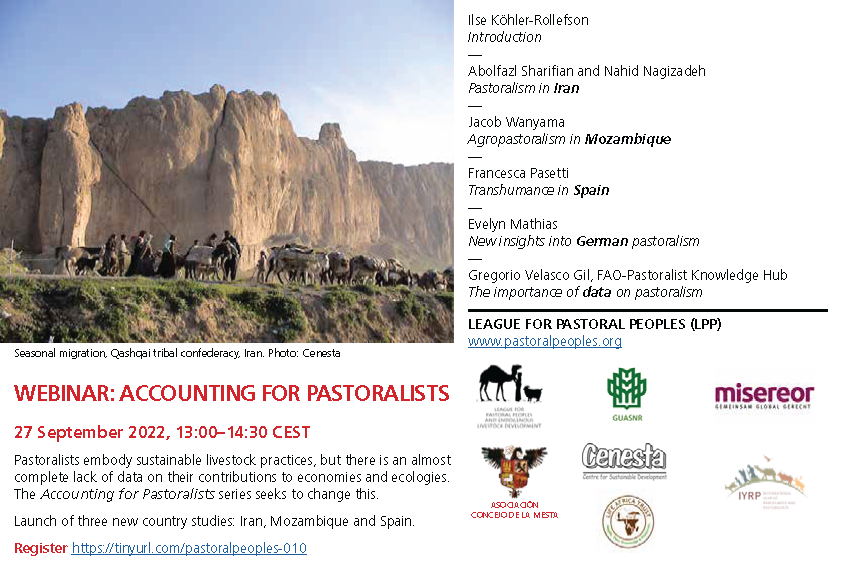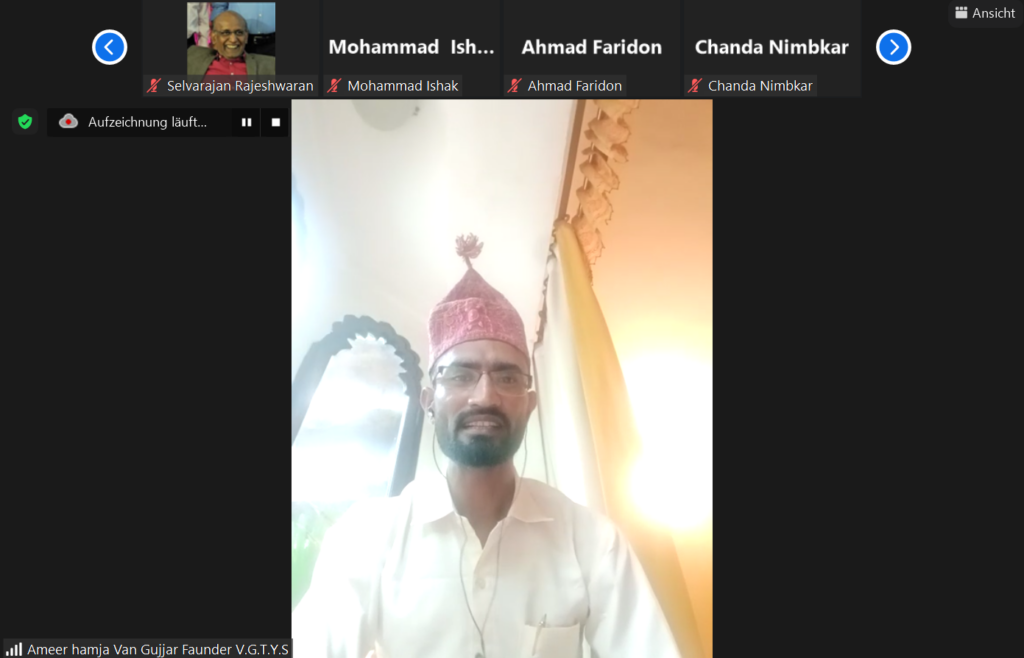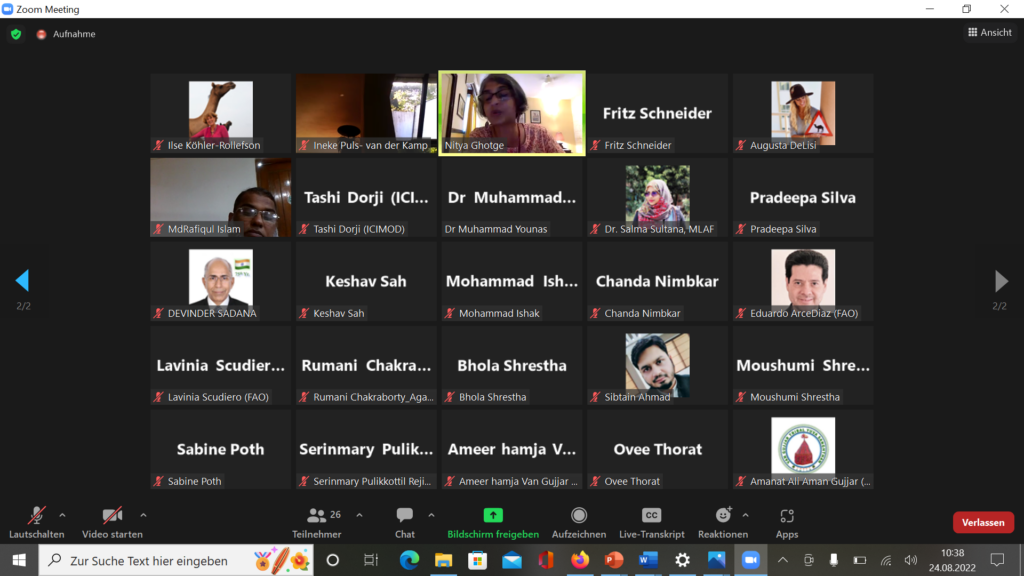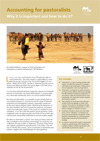Launch of new Accounting for Pastoralists studies on 27th September, at 1 pm CEST.

Please join us for the release of new Accounting for Pastoralists studies for Iran, Mozambique and Spain, as well as an update on the situation in Germany, and commentary by Gregorio Velasco Gil of FAO’s Pastoral Knowledge Hub on Tuesday, 27th September, 2022 at 1 p.m. CEST.
Register here.
Livestock and Planetary Boundaries
In order to accompany and set the scene for the South-Asia Regional Meeting of the Global Agenda for Sustainable Livestock (GASL), LPP, in collaboration with ANTHRA, organised a three day hybrid workshop to discuss Planetary Boundaries for Livestock. The event took place in Jodhpur (Rajasthan) from 22-24 August, 2022. It started out with an introduction to the theme by Nitya Ghotge followed by a brilliant presentation from Katrien van’t Hooft entitled Dutch farmers in distress – a case of exceeding environmental boundaries that explained the background of the current situation in the Dutch dairy sector. The final paper of the day was by Debanjana Dey about the science and policy interface for the conservation of animal genetic resources in India.
After a summary of the first day’s procedings by Prof. Selvarajan Rajeshwaran, the second day began with a presentation by Kamal Kishore and Ilse Köhler-Rollefson contextualising the Indian livestock sector from the perspective of Planetary Boundaries. This was followed by extensive comments from academia by Prof. Sarjan Reddy and from the grassroots by Amir Hamja, founder of the Van Gujjar Yuvak Sangathan. Amir Hamja described in detail the relationship of his community, the Van Gujjars, with their buffaloes and the Himalayan landscape, and how respect for planetary boundaries is an integral part of their culture.

In the afternoon of 23rd August, Robyn Alders of the Australian National University presented the keynote address for the official South Asia regional meeting of GASL, also focusing on Planetary Boundaries. This was followed by a panel discussion with distinguished participants from various South Asian countries.

The final day saw various presentations that focused on innovative and small-scale approaches to put livestock development on a sustainable track, moderated by Chanda Nimbkar of the Nimbkar Agricultural Research Institute and by Ovee Thorat, a free lance researcher. This included a contribution by Himmothan on decentralized feed mills in the Himalayan region and an account of community based eco-restoration of grasslands by Kaustubh Pandharipande from the Foundation for Economic and Ecological Development.
Noteworthy among them was a contribution by Augusta deLisi, founder of Nomadic Nutrition, who explained her vision for the production of ‘cruelty-free’ camel milk based health food that would provide an alternative for people turning vegan because of animal welfare concerns.
Accounting for pastoralists: Why it is important and how to do it?
Ilse Köhler-Rollefson / League for Pastoral Peoples and Endogenous Livestock Development / 2020

Pastoralism is a way of raising animals with nature. It entails the movement of people and herds across landscapes, making use of natural vegetation and crop by-products.
Pastoralism corresponds to public demands for high animal welfare and environmentally friendly methods of livestock production. If we want to make the livestock sector more sustainable, this production system requires strong policy support.
We currently do not know how many pastoralists there are globally or within each country. This is due to the absence of data collection and because pastoralism is not a distinct category in livestock censuses.
Outdated colonial concepts and one-sided focus on the “efficiency” of livestock systems have prevented the recognition of the benefits of pastoralism as a solar-powered, biodiversity-conserving food-production strategy.
In order to monitor the situation and provide a basis for policymaking, FAO should lead a global initiative to define pastoralism and record data by production system.
- Go to the previous page
- 1
- …
- 3
- 4
- 5
- 6
- 7
- 8
- 9
- …
- 82
- Go to the next page
